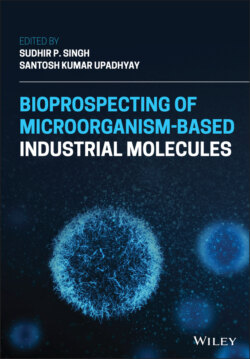Читать книгу Bioprospecting of Microorganism-Based Industrial Molecules - Группа авторов - Страница 71
4.4.3.3 Collagenase and Elastase Inhibition
ОглавлениеThe epidermis of the skin is attached firmly by connective tissue beneath dermis. The fibroblast (dermis) produces two proteins: collagen and elastin, which serves as a protective role in the skin [71]. Elastin is an important protein providing elasticity to the connective tissues, viz., cartilage, lungs, and skin. In aging phenomena, degradation of elastin is occurring due to the elevated level of elastase enzyme. Collagen is an important part of skin responsible for maintaining elasticity and flexibility of the skin. During the aging process, a significant decrease in the level of collagen, elastin, and HA results in loss of flexibility, moisture, and strength of skin, resulting in wrinkle formation. [72]. Additionally, MMPs are endopeptidases that degrade the extracellular matrix associated with pathological and physiological conditions like inflammatory response and also carcinogenesis [73]. Kim et al. [71] has reported the mycelial extracts of Tricholoma and Grifola sp. possess the anti‐collagenase and anti‐elastase activity. Further two‐hybrid compounds, ascorbyl‐3‐pcoumarate and the ascorbyl‐2‐p‐coumarate mixture of ascorbic acid and p‐coumaric acid serve as necessary cosmeceutical agents for increasing the collagen synthesis from dermal fibroblast and also decreasing the MMP protein expression [74].
